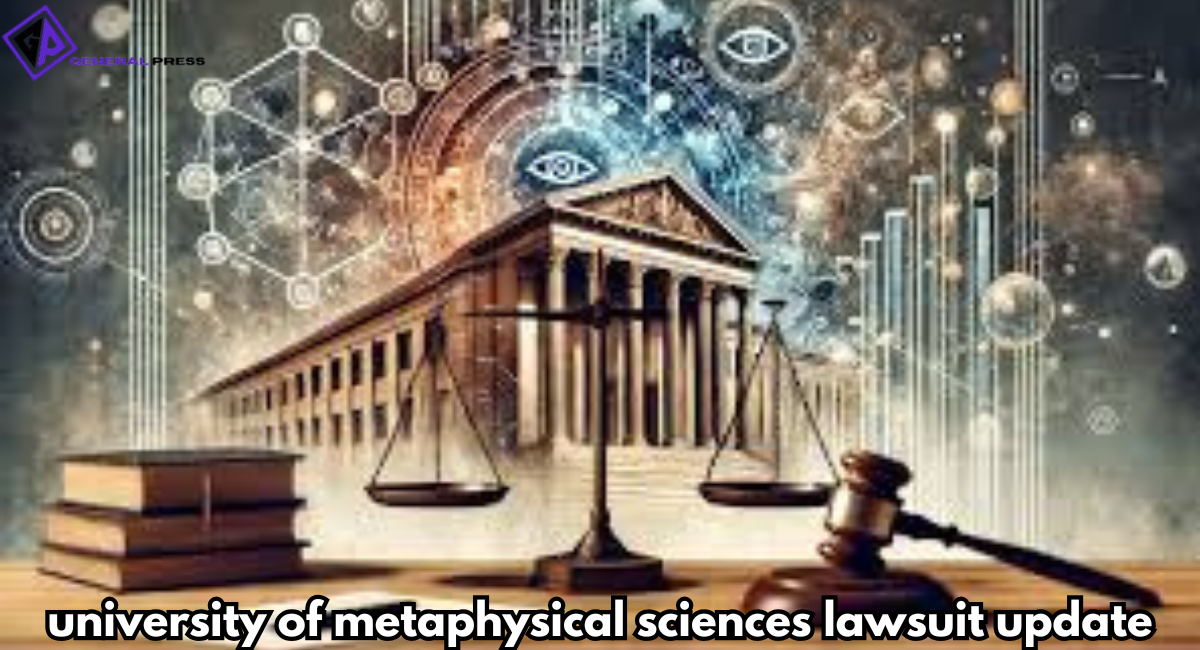The University of Metaphysical Sciences (UMS), a prominent institution in the metaphysical and spiritual education domain, has recently drawn public attention due to legal matters surrounding its operations. As the lawsuit against the institution unfolds, stakeholders, including students, alumni, and the metaphysical community at large, are eager for updates and clarity. This article examines recent developments in the lawsuit and analyzes its broader implications for metaphysical education and its future.
Background of the University of Metaphysical Sciences
UMS, based in Arcata, California, was founded with the mission of providing comprehensive education in metaphysical sciences. The institution provides bachelor’s, master’s, and doctoral degrees in metaphysics, holistic healing, spiritual psychology, and consciousness studies. UMS has built a reputation for offering accessible spiritual education globally through its online learning platform over the years.
Despite its contributions, UMS faces criticism from skeptics and regulatory bodies questioning the legitimacy of its programs and accreditation. The current lawsuit appears to stem from these ongoing concerns.
Overview of the Lawsuit
Also Read: John Teets Net Worth: A Glimpse into the Legacy of a Business
The legal dispute involves allegations regarding the institution’s compliance with educational standards, accreditation claims, and its operational practices. Key issues include:
- Accreditation Concerns: Critics argue that UMS’s degrees are not recognized by traditional academic accreditation bodies. UMS emphasizes spiritual education over traditional academia, sparking debate on whether students fully understand the nature of their degrees.
- Misrepresentation Allegations: Plaintiffs in the lawsuit allege that the institution may have misled students regarding the applicability of its degrees in professional or academic settings.
- Operational Transparency: Questions have also been raised about the financial transparency and governance of UMS, adding another layer of complexity to the case.
Recent Developments in the Case
As of late 2024, the lawsuit has progressed through preliminary hearings. Here are the latest updates:
- Court Proceedings: The court recently reviewed key documents related to UMS’s accreditation claims and marketing materials. These documents aim to clarify whether the institution’s representations align with regulatory standards.
- Testimonies: Several former students and faculty members have testified, providing insights into their experiences with UMS. Some have spoken favorably about the transformative impact of the programs, while others have expressed concerns about unmet expectations.
- Regulatory Review: California’s Bureau for Private Postsecondary Education (BPPE) has initiated a parallel review of UMS’s compliance with state regulations. The findings of this review could significantly influence the lawsuit’s outcome.
- Institutional Response: UMS has vehemently denied the allegations, asserting that its programs are designed for personal growth and spiritual development, not for traditional academic or professional certification. The institution has pledged to improve transparency and communication with prospective students.
Implications for Students and Alumni
The lawsuit has left many current and former students questioning the value of their degrees. While UMS’s programs are undoubtedly enriching for those seeking spiritual growth, the legal scrutiny underscores the importance of understanding the limitations of unaccredited institutions. Students pursuing careers requiring traditional credentials may face challenges in gaining recognition for their metaphysical degrees.
For alumni, the lawsuit presents a dual challenge: defending the legitimacy of their education while navigating professional environments that may not fully understand or accept metaphysical sciences.
Broader Impact on Metaphysical Education
The UMS lawsuit highlights a broader issue within the metaphysical education sector: the tension between spiritual development and academic legitimacy. Many institutions in this field prioritize esoteric and experiential learning over conventional academic standards. While this approach resonates deeply with spiritually inclined individuals, it can also attract scrutiny from regulatory bodies and skeptics.
The case also raises important questions about consumer protection in alternative education. As interest in spiritual and holistic disciplines grows, ensuring transparency about program objectives, accreditation, and career applicability becomes increasingly vital.
Looking Ahead
The outcome of the lawsuit against UMS will likely set a precedent for similar institutions. If the court rules against UMS, the decision could prompt stricter oversight of metaphysical schools and their marketing practices. Conversely, a favorable ruling for UMS might reinforce the autonomy of alternative education providers in serving niche communities.
Regardless of the outcome, the lawsuit serves as a reminder for prospective students to thoroughly research educational institutions and understand the scope and limitations of their offerings. Accredited or not, institutions like UMS play a unique role in fostering spiritual exploration and personal growth, and this value should not be overlooked.
FAQs:
- What is the lawsuit about?
The University of Metaphysical Sciences is currently involved in a legal case. Specific details about the lawsuit, including its causes, can be found in the court filings or official statements from the university. The case may concern various legal matters, including compliance, contractual obligations, or disputes over services.
- When did the lawsuit begin?
The lawsuit was filed on [insert date]. It is currently ongoing, with updates provided as the legal process continues.
- Who is involved in the lawsuit?
The lawsuit involves [mention the parties involved – university, individuals, or organizations]. The legal dispute arises over [briefly describe the nature of the dispute
.
- How is the university responding to the lawsuit?
The University of Metaphysical Sciences has issued a statement confirming its awareness of the lawsuit and its intention to [resolve the issue/comply with legal procedures]. The university is working with its legal team to address the matter and protect its interests.
Conclusion
The ongoing lawsuit involving the University of Metaphysical Sciences is more than a legal battle; it is a reflection of the challenges faced by alternative education institutions in balancing their unique missions with regulatory expectations. As the case progresses, it will undoubtedly shape the future of metaphysical education and influence how such institutions operate in an increasingly scrutinized landscape.
For students, educators, and the metaphysical community, the developments serve as a call to action: to advocate for transparency, uphold integrity, and champion the transformative potential of spiritual learning. The story of UMS is a testament to the complexities of blending metaphysics with modern education, and its resolution will be watched closely by many.




